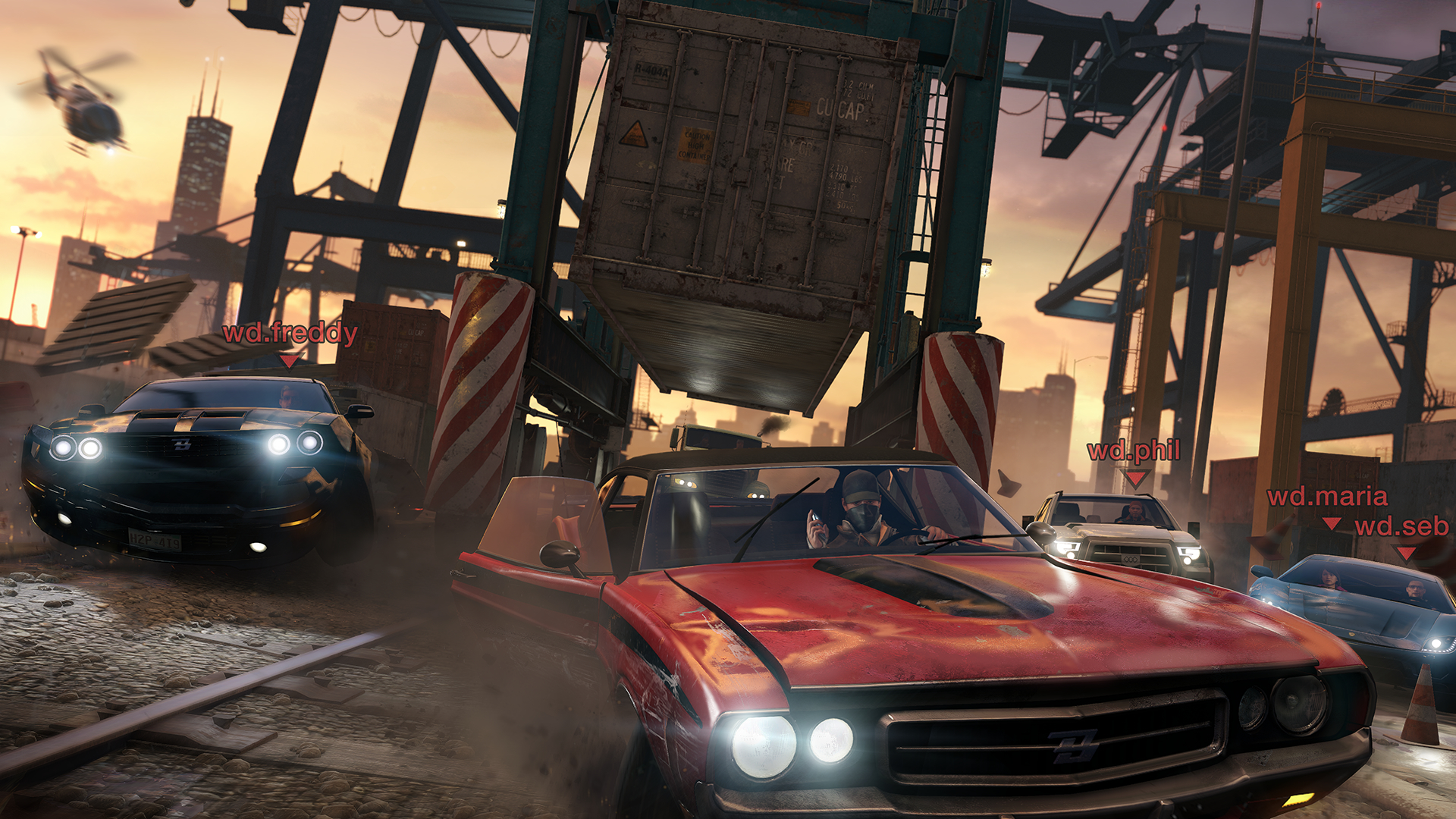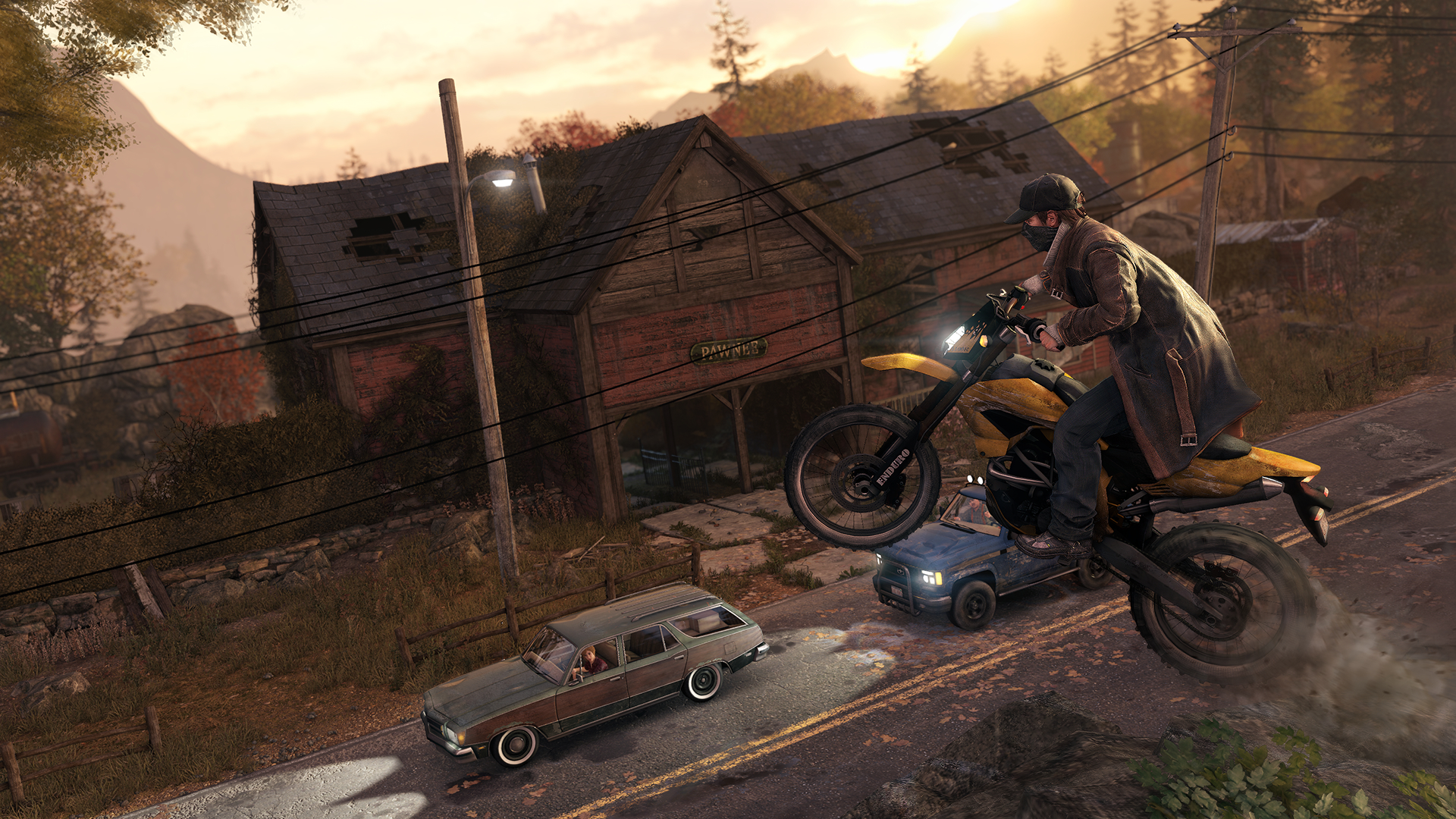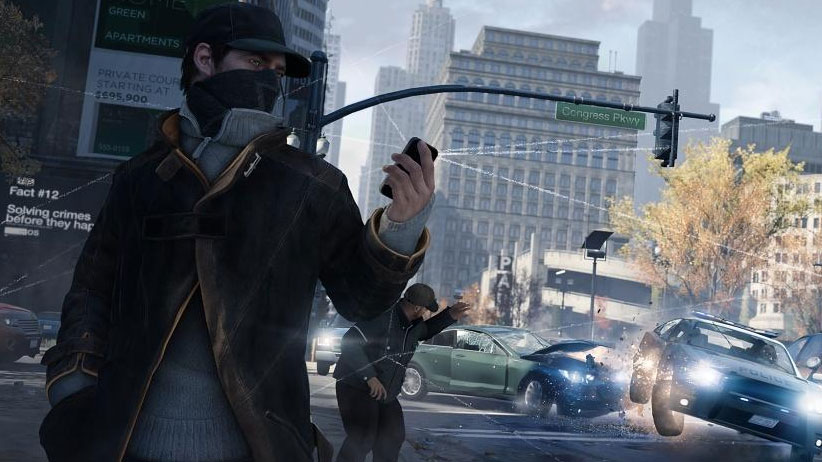Watch Dogs: a hacking utopia that's more real than you think
You've got a scud missile? That's cute, I've got a smartphone

Sign up for breaking news, reviews, opinion, top tech deals, and more.
You are now subscribed
Your newsletter sign-up was successful
For a lot of people, Watch Dogs is the true herald of next-gen gaming. At E3 2012 there was a feeling that the console generation had run its course, but when Ubisoft teased its open-world hacktopia many of you sat up and got excited. And for good reason - this actually felt like something new.
But it wasn't just about the graphics or how big Ubi's version of a hyperconnected Chicago was. There was something fascinating about a game where your most powerful weapon was your smartphone, where you wouldn't just roam the city but control it. What's more, there was something awfully real about it all.
Ubisoft's intention was to make something that was authentic, enjoyable to play, and also served as a comment on how smart cities could come back to bite their creators.
"Everything we've done was based on reality," says Thomas Geffroyd, the game's content director. "Everything you do in the game is feasible in one way or another."
You only need to spend a small amount of time with Watch Dogs to see how unnerving those words are. Sure, having everything accessible in one place - in this case the Central Operating System, ctOS - is perhaps less feasible in reality, but Geffroyd reckons that even that idea isn't too far away. "I'm sure that in the next five to ten years we'll have a centralised system in most smart cities. It's the most efficient thing to do."

Hack 'n' slash
Taking the role of grey hat hacker Aiden Pearce, you as the player progress through the game to earn more hacking abilities, gradually transforming Chicago city into your own manipulatable playground.
You'll start with basic hacks like traffic lights (good for causing obstructions during those hot pursuits) and move your way up to more complex maneuvers such as raising drawbridges and causing street pipes to explode.
Sign up for breaking news, reviews, opinion, top tech deals, and more.
While hacking is fluid and accessible enough for any player to pick up and immediately have fun with, Ubisoft tells us that it carried out three years of research into the game's hacking systems to imbue a real sense of realism - even if it's only appreciated by the real Aiden Pearces of the world.
"We spent the first three years working on research because the hacking and security community are very adamant about sharing everything on the internet, so there was already a wealth of information," says Geffroyd.
"We went to Defcon, we went to Blackhat, the big conferences, not only for the technical knowledge but also for the culture and the identity of hacking."

Ubi did a lot of its own invesitgative work, but when it came down to the more granular aspects it was time to call in the real experts. So the team brought in specialists from Kaspersky to run through the game's script and features and help give Watch Dogs those important tweaks.
"What we did from day one was make Watch Dogs a true medium about hacking. The hacking community is very diverse. There are black hats, white hat, grey hats. Sometimes it's the same person doing the three things at different times of the day or the night.
"We wanted to have this ability for the player to experience the world of hacking just as anyone with technical knowledge and the will to test security could have in their hands. Am I going to do good or am I going to do wrong? Am I going to use this power to steal things?"
Of course, calling in the good guys would mean only half of the story was being told properly, so the studio also spoke with various hacking groups - though for the sake of protection wouldn't tell us who. Very rapidly, the development team found that a lot of the ideas in the game weren't as radical as they were first intended to be.

Hugh Langley is the ex-News Editor of TechRadar. He had written for many magazines and websites including Business Insider, The Telegraph, IGN, Gizmodo, Entrepreneur Magazine, WIRED (UK), TrustedReviews, Business Insider Australia, Business Insider India, Business Insider Singapore, Wareable, The Ambient and more.
Hugh is now a correspondent at Business Insider covering Google and Alphabet, and has the unfortunate distinction of accidentally linking the TechRadar homepage to a rival publication.